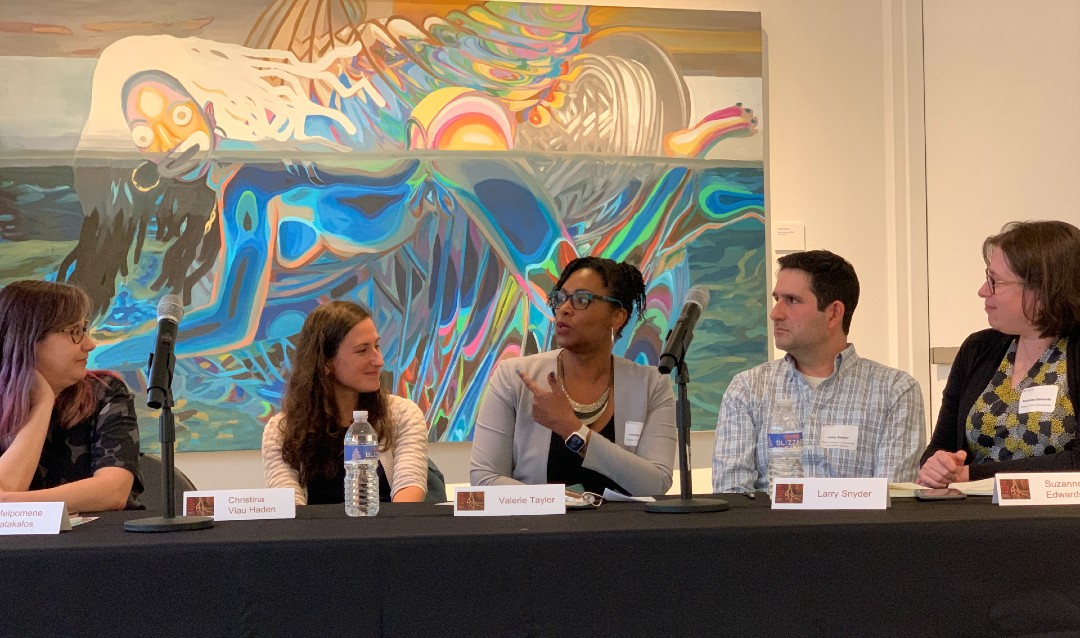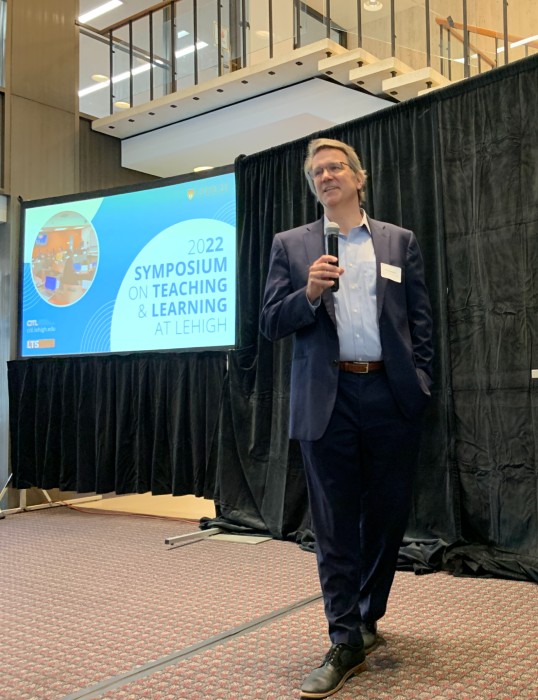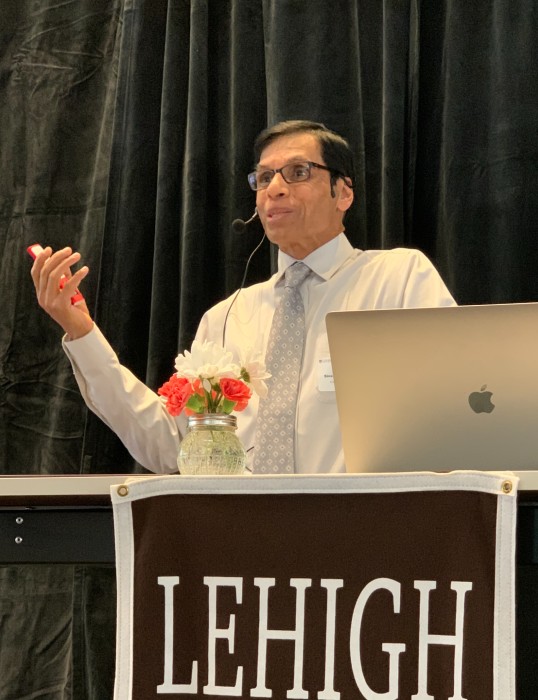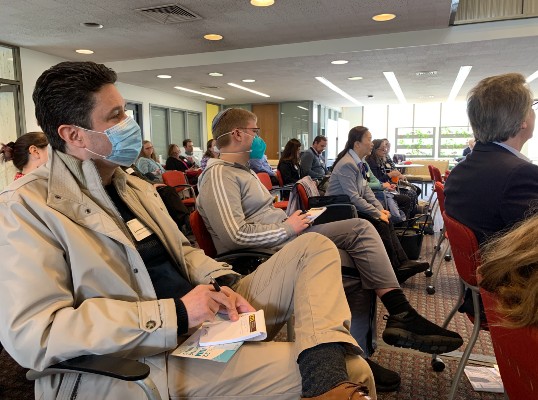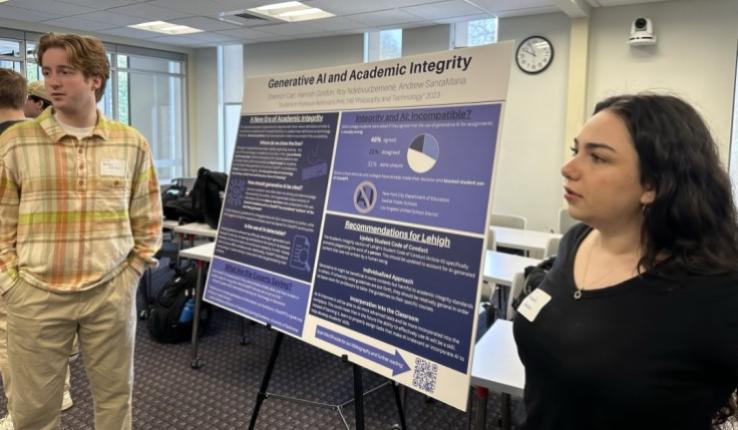During Lehigh’s 13th annual Symposium on Teaching and Learning, Lehigh educators discussed changes in their approaches to instruction as a result of the pandemic and the new techniques they plan to carry into the future, from hybrid learning to virtual reality and mindfulness.
Hosted by the Center for Innovation in Teaching and Learning (CITL), the event took place April 6-7 after a two-year hiatus due to the pandemic. It was the 13th year Lehigh has held the event, which took place in the Fairchild-Martindale Library the first day, then virtually the second morning, ending in the main gallery of the Lehigh University Art Galleries with an in-person faculty panel discussion on interdisciplinary teaching innovations co-sponsored by the Mellon Humanities Lab.
There were 21 presentations of about 10 minutes each, with a total of 160 faculty, students and staff attending at least one session.
“Over the past two years, our faculty found they had to rethink how they interacted with our students…They had to recast their methods of instruction,” said Greg Reihman, vice provost for Library and Technology Services and Director of the CITL, who has served as the organizer and presenter of the event since its inception in 2008.


